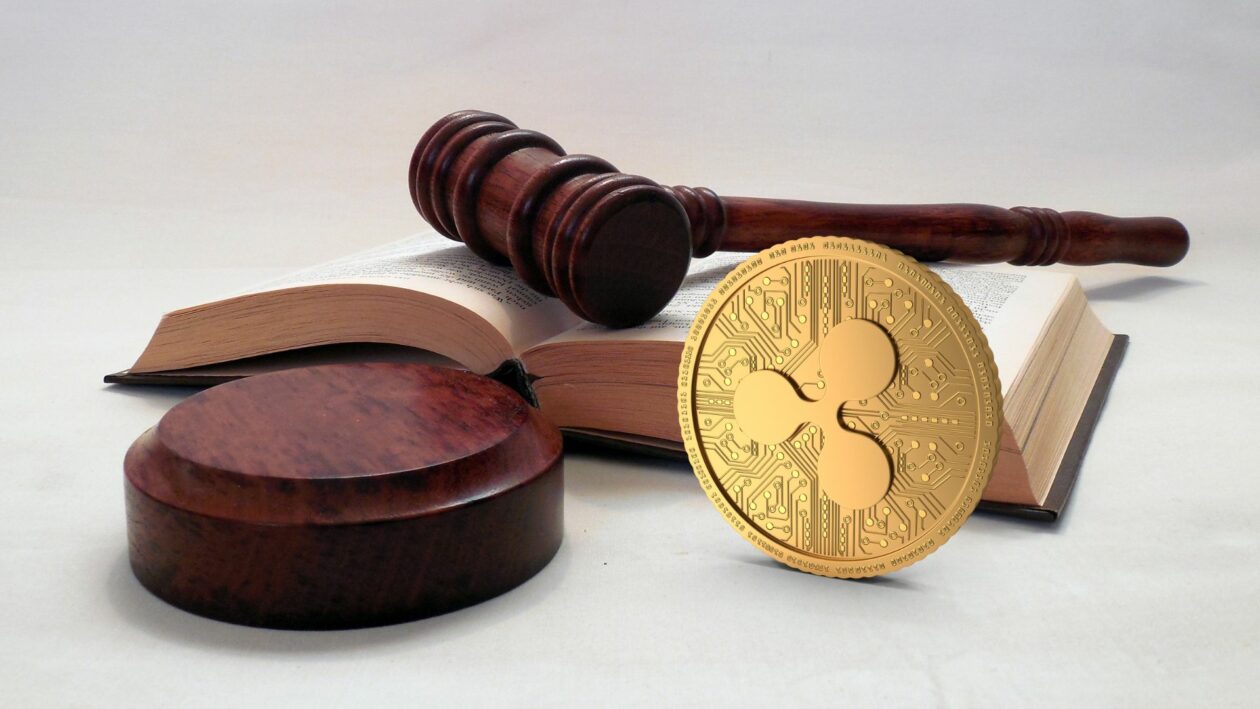
The SEC v. XRP Ledger Inc. et al. lawsuit has officially moved into the summary judgment phase. This means that both sides are submitting their motions to the court, which could potentially lead to a settlement or verdict.
Defense lawyer James Filan recently tweeted out some information regarding the filings that were submitted to the court. He stated that both parties had submitted their motions on Friday, 18 August. Filan went on to explain that he did not think it was possible for the filing to happen earlier than Monday, 19 September.
Filan further noted that he believed there was no reason why the motions could not be filed now. However, he acknowledged that the judge could decide otherwise.
This news follows a recent tweet from the SEC’s Chief Counsel Randal Quarles stating that the regulator is seeking a dismissal of the case against Ripple Labs.
Quarles wrote:
“We believe we have met our burden under Rule 12(b)(6), Fed.R.Civ.P., and therefore request that the Court dismiss the complaint without prejudice. We look forward to defending ourselves in court.”
In addition to this, the SEC has also requested a delay in the discovery process until the end of October.
Ripple’s Response
The Securities and Exchange Commission (SEC) recently filed charges against Ripple Labs Inc., alleging that the San Francisco-based startup sold unregistered securities. In response, Ripple Labs says it does not believe the allegations are valid and intends to defend itself vigorously.
In a filing with the United States District Court for the Southern District of New York, Ripple Lawsuit Labs states that the SEC has taken “a fundamentally flawed approach” to defining what constitutes a security under US law. The company claims that the SEC’s interpretation of the term “investment contract” is inconsistent with Supreme Court precedent, and that the SEC has applied the same standard to virtual currency offerings that it has applied to traditional financial products.
If Ripple is successful in proving that the SEC has acted arbitrarily, the ripple effect could be significant. This is because the SEC’s position regarding the classification of digital assets like XRP could impact the way other regulators view cryptocurrencies.
The SEC’s Claims
In their legal action made at end of December, the Securities and Exchange Commission (SEC) claimed that XRP is classified as a security because it is being used to fund Ripple’s platform, called xCurrent, which facilitates transactions among banks and other financial institutions. This platform allows companies like American Express, Santander Bank, and MoneyGram to move large amounts of money around the world within seconds.
The platform’s executives are also benefiting financially from the sale of XRP, since the company makes money from transaction fees.
When determining whether a digital asset counts as a security, regulators apply the “Howey Test,” which looks at three factors:
1. Is there an investment of money?
2. Does the investor rely on the efforts of others?
3. Has someone else been given the power to make decisions about how much profit to invest?
If you answer yes to all three questions, then the asset is considered a security.
Fast facts
SEC Chairman Gary Gensler says he wants to make sure cryptocurrencies are treated like traditional financial instruments. But some industry watchers say his approach could stifle innovation.
The chairman told the Wall Street Journal in an opinion piece published on Sunday that the Securities Act of 1933 requires regulators to treat crypto assets like stocks, bonds, commodities and derivatives. He added that the Commodity Futures Trading Commission needs to do the same thing.
Gensler also reiterated that the SEC is trying to regulate crypto exchanges like stock exchanges, adding that the agency doesn’t want to “take over” the market.
But critics argue that it’s already too late. They say the SEC’s recent actions against ICO issuers, including those related to unregistered offerings, show that it’s taking a hostile attitude toward the nascent space.
In addition, the agency has taken steps to prevent people from trading cryptocurrencies without being registered. And now it’s proposing rules that would require companies to register with the SEC if they plan to issue tokens that represent equity in the firm — even if they’re not selling shares to investors.
For example, Coinbase Inc., one of the largest crypto wallets in the world, plans to launch a fund called Global Digital Asset Investment Fund (GDVF), according to documents filed with the SEC in October. GDVF will invest in blockchain startups and offer a way for institutional investors to gain exposure to the sector.
Coinbase CEO Brian Armstrong wrote in a blog post that the fund is structured to comply with existing regulations and won’t sell any securities. Still, the move is likely to draw scrutiny from the SEC because it will allow customers to buy into the fund directly from Coinbase.
Ripple CEO Discusses Potential Outcomes of SEC Lawsuit Over XRP
Brad Garling house, Ripple’s CEO, recently told Bloomberg that he believes the SEC could settle the case against the cryptocurrency firm without filing charges. He added that the SEC might even drop the suit altogether. In addition to this, he suggested that the agency could file criminal charges against Ripple. However, the CEO noted that such actions are unlikely because the SEC is already facing a tough time managing its current caseload.
The SEC sued Ripple in August 2018, claiming that it had been selling digital tokens known as XRP in violation of federal securities laws. At the time, the regulator demanded that the San Francisco-based firm halt the sales of XRP and return $45 million raised from investors.
Garling house further stated that the SEC’s decision to sue Ripple was based on the fact that the firm did not register the sale of XRP as a security. As per the CEO, the SEC does not want to see cryptocurrencies classified as securities. Instead, it wants to regulate them like commodities.
Ripple’s CEO Discusses Implications of SEC Winning the Lawsuit
Brad Garlinghouse, the chief executive officer of San Francisco-based Ripple, told Axios that the firm will continue to operate normally even if it loses the case against the US Securities and Exchange Commission (USSEC). And if Ripple wins the case, it would mean that XRP tokens are not classified as securities under American law.
The SEC filed a complaint against Ripple, Garlinghouse, former president David Schwartz, and former vice president Stefan Thomas in December 2018. In the suit, the agency alleged that the founders sold $100 million worth of XRP during 2017 and 2018 without registering the token with the SEC.
The SEC claimed that XRP was an unregistered security because it had characteristics similar to stocks, bonds, and options — namely, it could be bought and sold like a commodity.
Garlinghouse dismissed the allegations, saying that XRP is different from traditional financial instruments like stocks and bonds. “We’re not selling anything,” he said. “We’re just providing liquidity.”
He added that the company’s goal is to make sure that anyone can buy and sell XRP easily and cheaply.
When asked about how the company would respond to a loss, Garlinghouse said that the firm would still do everything it needs to do to provide transparency around XRP.

Leave a Reply